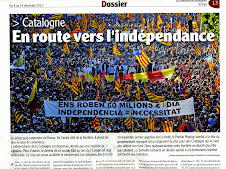“Pigs in muck” Lex-column in the 01 September 2008 Financial Times
Exciting countries get exciting acronyms, at least in financial circles. Fast-growing Brazil, Russia, India and China, for example, are called Brics, the very initials implying solid growth. Other countries are less fortunate. Take Portugal, Italy, Greece and Spain, sometimes described as the Pigs. It is a pejorative moniker but one with much truth.
Eight years ago, Pigs really did fly. Their economies soared after joining the eurozone. Interest rates fell to historical lows – and were often negative in real terms. A credit boom followed, just as night follows day. Wages rose, debt levels ballooned, as did house prices and consumption. Now the Pigs are falling back to earth.
How far they might drop can be seen in their trade figures. While the eurozone is broadly in balance, at the end of 2007 Spain and Portugal had current account deficits equivalent to 10 per cent of GDP. Greece's, meanwhile, was a whopping 14 per cent while Italy's deficit was relatively respectable at about 3 per cent.
The usual response to a yawning current account deficit is a stiff devaluation. But the Pigs are members of the euro, so that route is closed.
The next alternative is simply to carry on and somehow finance the deficit. But that is increasingly hard to do in these credit-chastened times. Indeed, Spain may have a particular problem. In the past, its banks – particularly the unlisted cajas – have used low-quality, asset-backed collateral to raise cheap funds from the European Central Bank. But the ECB plans to tighten its lending rules.
That leaves the last and most painful solution. Competitiveness can be restored through a drop in real wages. In other words, a deep recession. The most dramatic sign of this can be seen in Spain where the unemployment rate rose by almost a whole percentage point in the second quarter.
Britain, facing similar problems in the early 1990s when it was shackled to Europe's exchange rate mechanism, withdrew sterling from the ERM and the devaluation saved its sausage. Some now wonder if the Pigs, as part of the euro, risk turning into bacon.






























